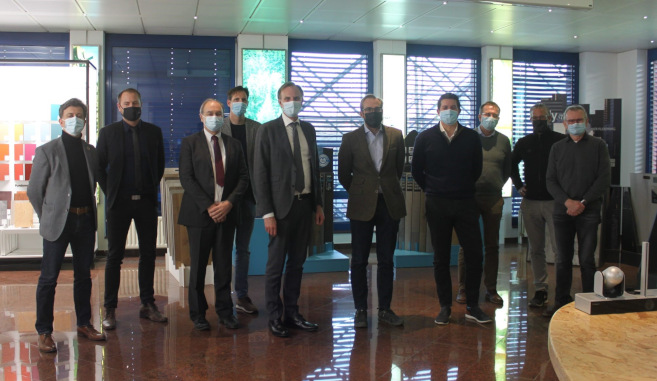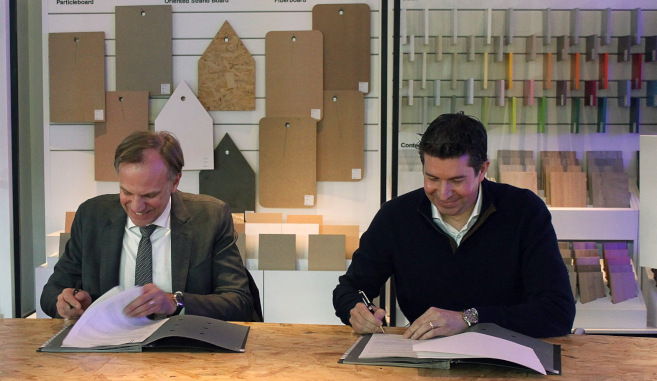LIST and Kronospan sign agreement targeting decarbonisation strategy
After 10 years of collaboration on a number of projects, the Luxembourg Institute of Science and Technology (LIST) and Kronospan Luxembourg S.A. signed a five-year Partnership Framework Agreement on 13 January 2022.
Sustainability and the environment are placed at the forefront of this Partnership Framework Agreement in the realms of research and development, as well as PhD collaborative training activities related to the production of wood-based panels
Alex Gambroudes, Kronospan Commercial Director stated: “Kronospan is working towards a more sustainable wood-based panel industry. We only purchase timber from the legal harvesting of sustainably managed forests in line with our own strict Kronospan Forestry Standards and the regulations of forest certification systems. I look forward to the partnership signed with LIST in order to assist with the further development of our sustainability strategy”.
The main areas of focus for the agreement are sustainability assessments using environmental and social Life Cycle Assessment (LCA), monitoring and controlling of air emissions, water and forestry management, optimising material streams and the reduction of waste.
One of the first projects looks at monitoring and studying ways of improving the Kronospan decarbonisation strategy with an environmental impact analysis of the site in Sanem. To this end, LIST will collaborate with Kronospan to work on the sustainability assessment of its products, and to a larger extent to their industrial value chain as a whole, in order to strengthen the company’s strategy aiming at significantly contributing to the decarbonisation of these activities at a local and European level.
Following the partnership agreement signing, LIST CEO Thomas Kallstenius said, “LIST is a centre of excellence in environmental sustainability, and we are happy to support the Luxembourg economy and in particular Kronospan, in its ambition towards reducing its environmental footprint while providing positive contributions to society, using science-based life cycle assessments”.












